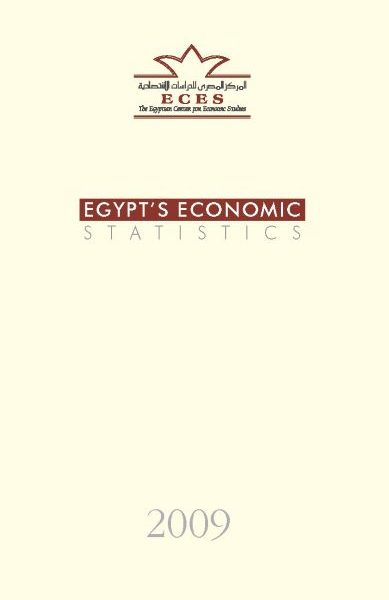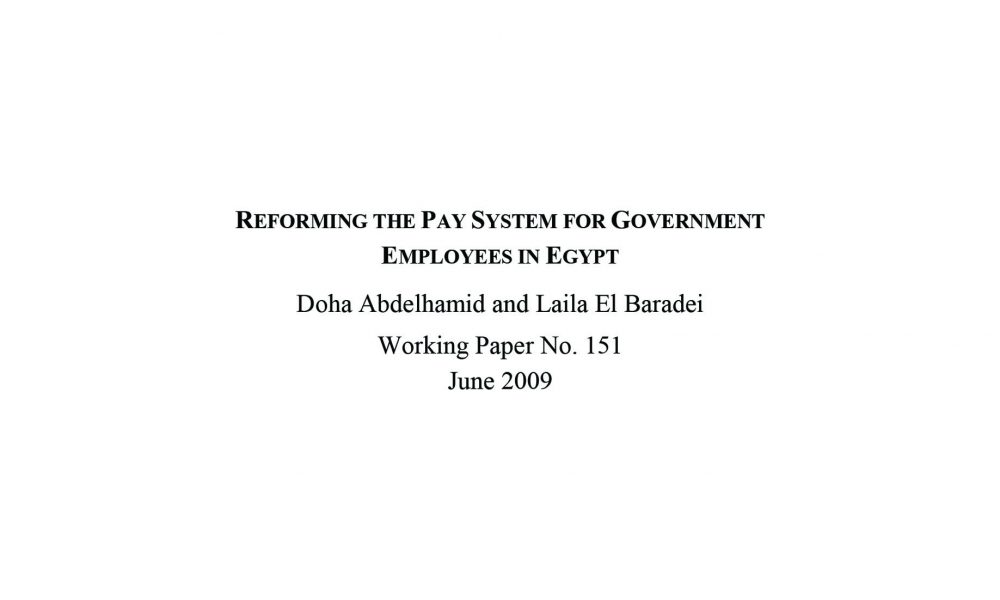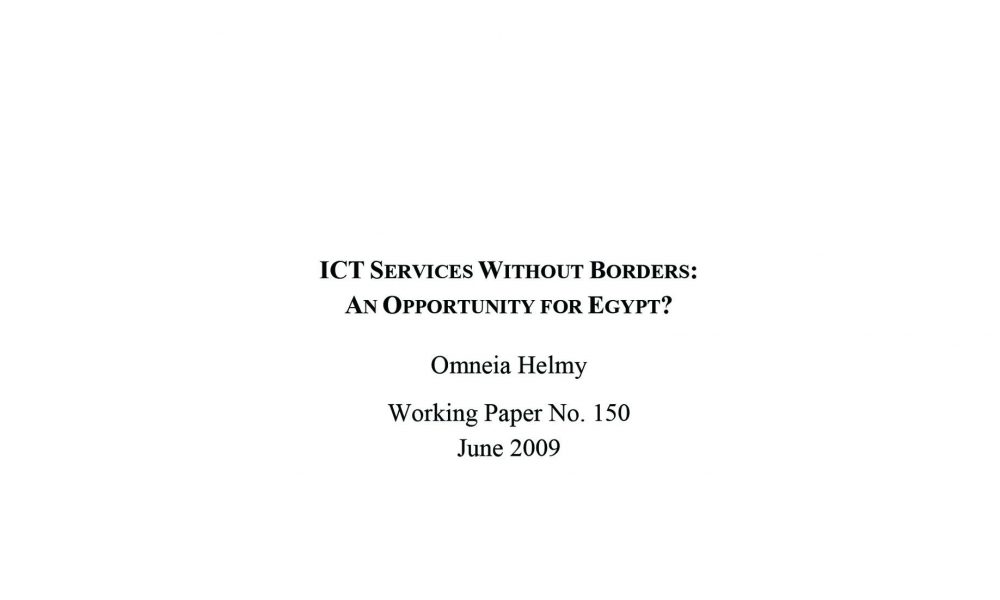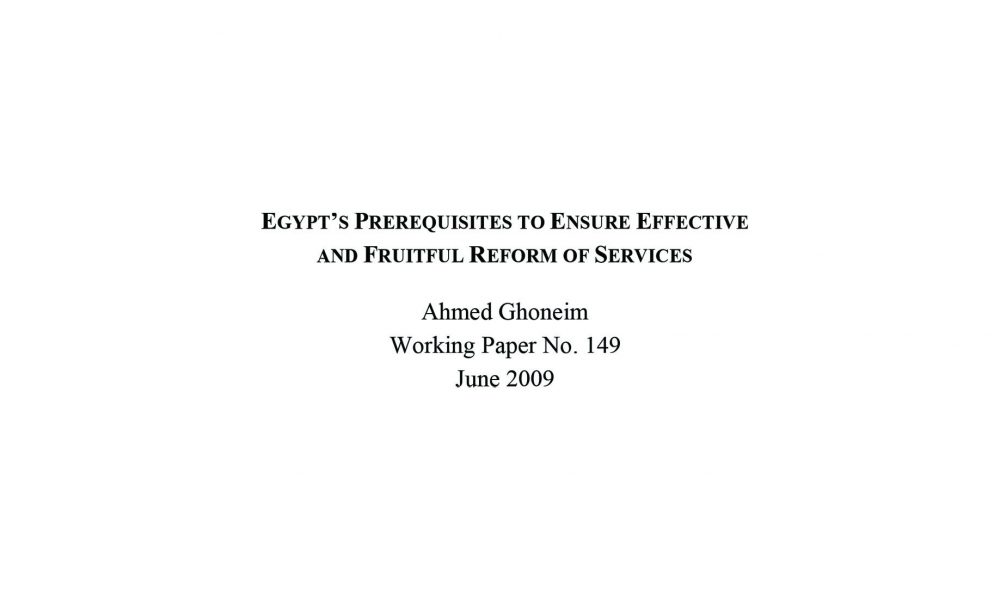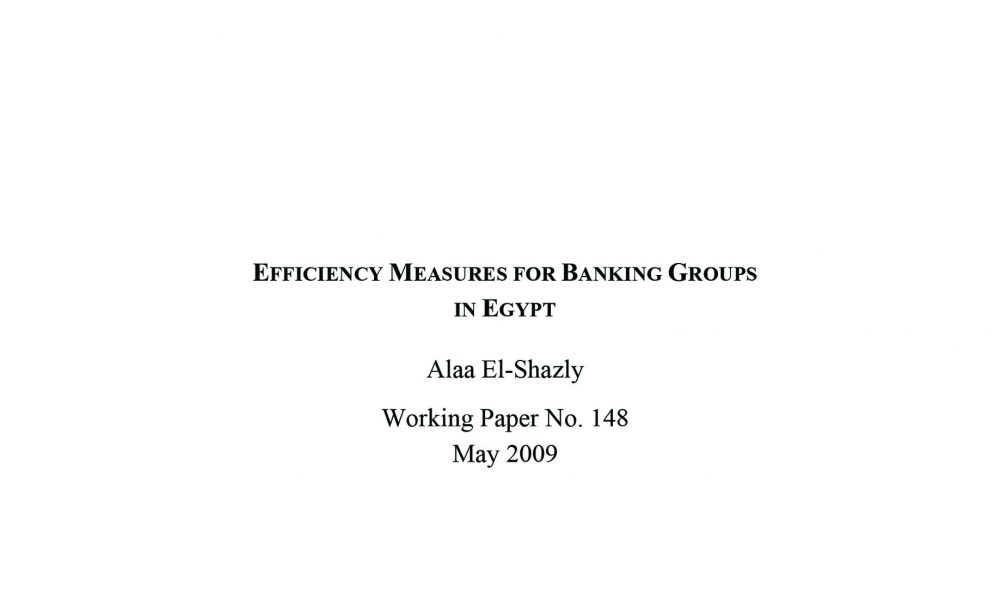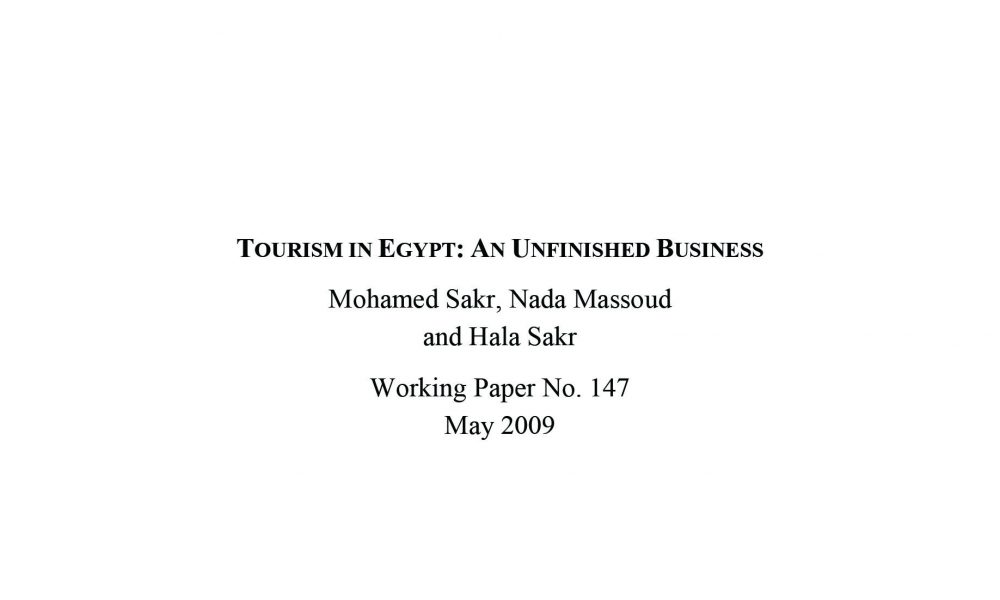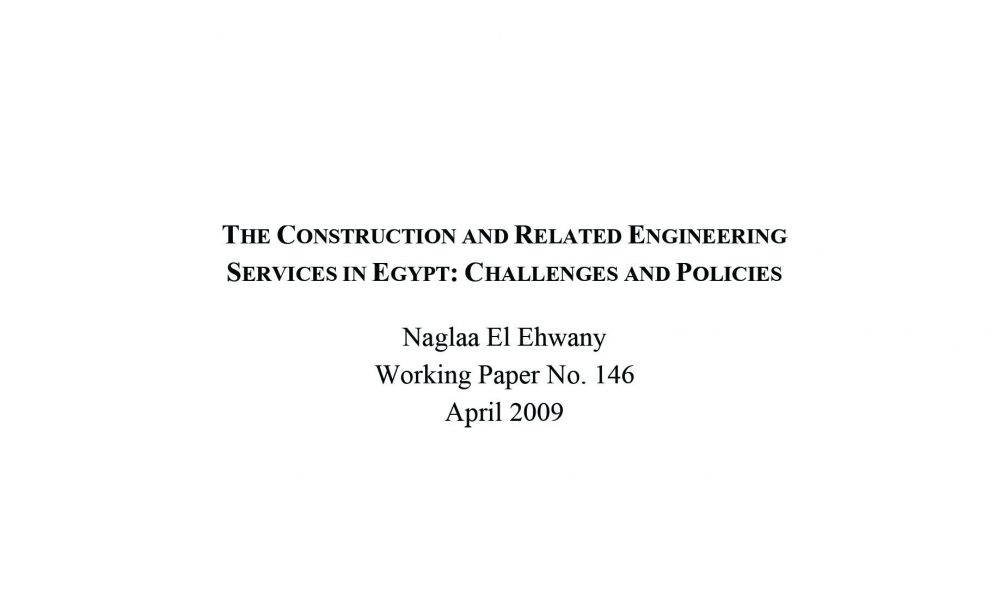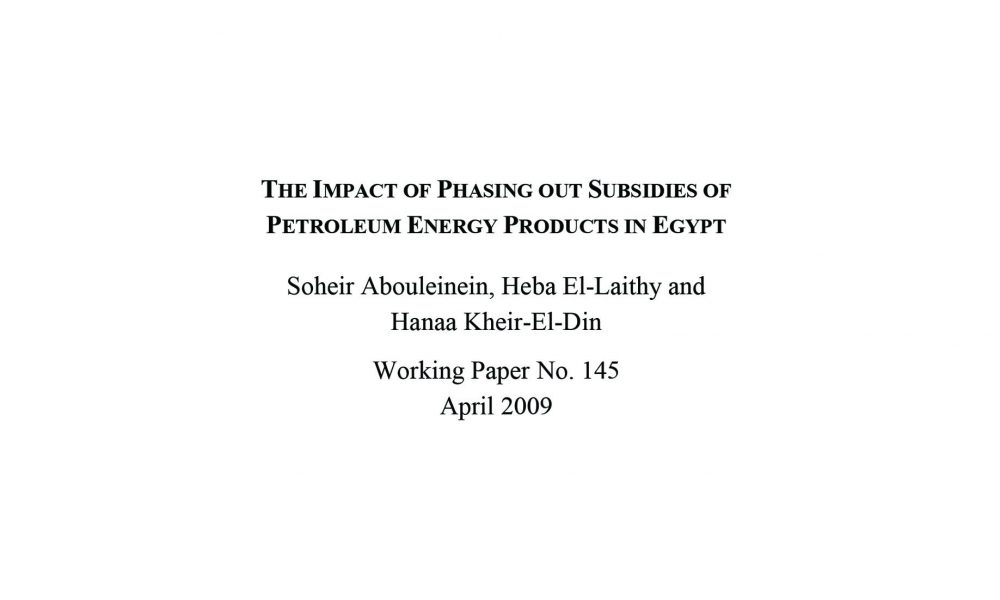Intended mainly for investors and the business community, this annual publication provides summary data and information on the various aspects of the Egyptian economy.
Abstract: This paper attempts to identify what needs to be done to reform the pay system for government employees in Egypt through proposing a concrete set of feasible policy solutions and strategies. After dissecting the structure and composition of the current pay system, conducting structured interviews with a sample of Egyptian government employees to solicit […]
Abstract: This paper attempts to identify ways to enhance the efficiency of the ICT sector in Egypt and to promote the diffusion and adoption of ICT in the economy. Since early 2000, Egypt has undertaken several reforms including an ICT supportive legal environment, a mix of market liberalization and the introduction of competition, increased private […]
Abstract: This paper investigates various means to reform the service sector in Egypt with the aim of enhancing its efficiency. It discusses the different regulatory and liberalization frameworks governing the reform initiatives. Moreover, the paper investigates how regional liberalization initiatives interact with the multilateral and unilateral waves of liberalization. The main drivers for services’ reform […]
Abstract: This paper investigates the performance of the banking sector in Egypt during a period characterized by privatization and a liberal economic regime. It reviews the developments in market structure and regulatory framework towards a more competitive system and measures efficiency for the various bank groups as classified by type of business activity and ownership […]
Abstract: Egypt’s tourism has experienced significant growth over the past fifteen years, but such outstanding performance did not prevent doubts about the sector’s effectiveness, potentials and future prospects. In this context, the paper investigates the reliability of official tourism figures in displaying the real economic impact of the sector, the extent to which tourism potentials […]
Abstract: In developing countries, the construction industry plays a vital role in terms of its contribution to GDP, investment, employment and exports, and because of its strong linkages with other sectors in the economy. In Egypt, this industry has significant potential due to a combination of factors, namely, the accumulated expertise in this industry—being one […]
Abstract: This study assesses the expected short- and medium-run impact of phasing out subsidies of energy products in Egypt. To capture this impact on the most relevant economic variables and sectors, the study conducts an input-output analysis and a computable general equilibrium (CGE) model based on an estimated social accounting matrix (SAM) for the Egyptian […]
Abstract: This study discusses ways of reviving and improving the system of waqfs (endowments) in Egypt, a longtime source of sustainable development in Arab and Muslim communities and a forerunner of what are contemporarily known as civil society organizations. Historical experience also shows that this system once played a vital role in such areas as […]
Abstract: The world economy is currently going through a serious financial upheaval that sparked off in the United States and has spread to Europe and the rest of the world, aided by increased globalization and liberalization of the world economy. Although the crisis has already led to the collapse of influential banks and firms as […]

